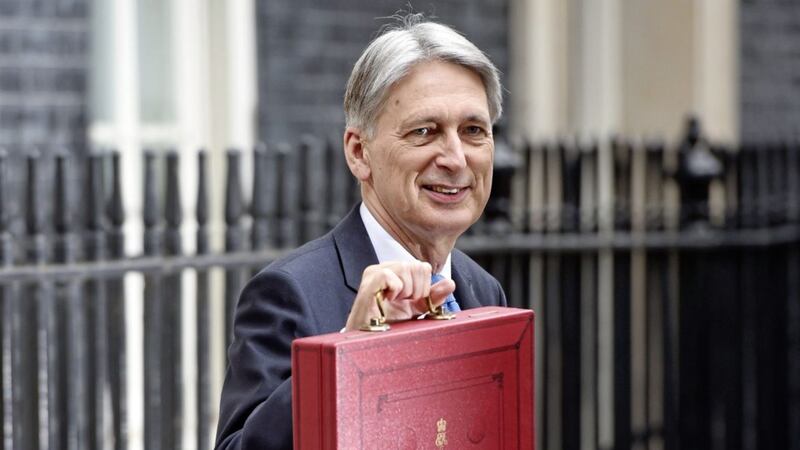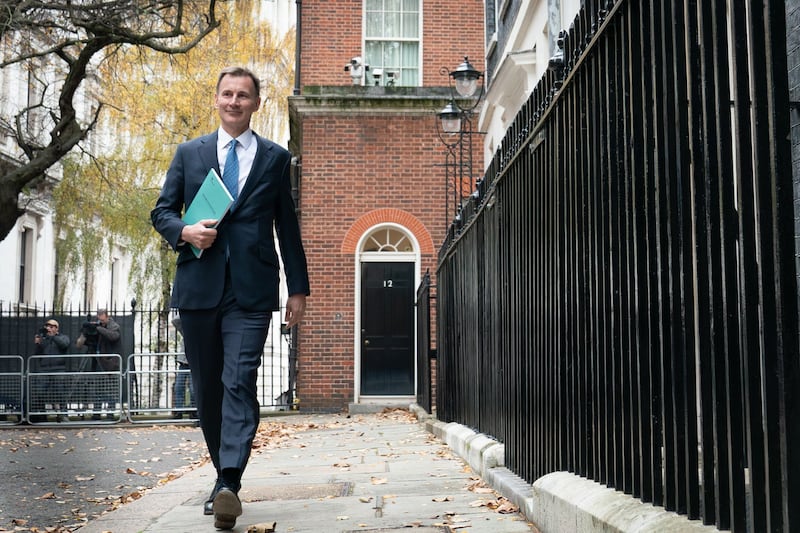CHANCELLOR Philip Hammond is set to deliver a dose of economic cheer in next week's Spring Statement thanks to sharply lower borrowing forecasts, but there will be no tax giveaways, experts say.
Economists believe the UK's fiscal watchdog will nudge up near-term growth forecasts as the global economy powers ahead, while slashing expected Government borrowing for 2017-18 by as much as £7 billion.
But the Chancellor is likely to bank the windfall as a much-needed buffer, with the impact of the EU divorce bill on the public finances set to be laid bare for the first time alongside the statement.
The Office for Budget Responsibility (OBR) will estimate the hit to the public purse from Brexit payments to the EU every year for decades going forward.
This follows the Government's agreement to pay between £35 billion and £39 billion under an initial Brexit settlement.
With the focus firmly on the economic forecasts and Brexit bill, the Spring Statement on March 13 is otherwise expected to be a non-event after Mr Hammond made clear he wants to keep major announcements to the main Budget, which he has moved to November.
Samuel Tombs at Pantheon Macroeconomics is forecasting borrowing to be cut to £43 billion for the year to the end of March, down from the £49.9 billion predicted by the OBR in November.
It comes after official figures showed the second highest surplus since records began in January thanks to a bumper haul of tax receipts.
Mr Tombs said there will also be cuts to annual borrowing of £5.5 billion on average through to 2022-23, despite higher payments on Government debt due to financial markets pencilling in a series of UK interest rate rises. But he will hold on to the windfall for now, he added.
Experts at PwC believe there may also be scope for minor upward tweaks to the OBR's gross domestic product (GDP) predictions after the economy has remained surprisingly robust thanks in part to strong global growth.








